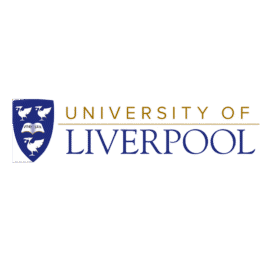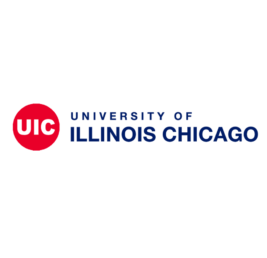
PhD-Biomedical Imaging and Biosensing
PhD @University of Liverpool posted 4 weeks ago in Biological Sciences , in Computational Biology Shortlist Email JobJob Detail
-
Experience No Preference
-
Qualifications Master’s
Job Description
Overview
Our Biomedical Imaging and Biosensing research degree offers the opportunity to undertake a multi-disciplinary research project in physics, chemistry, biology and mathematics. You’ll explore the application of novel imaging and analytical approaches to the study of normal physiology and disease mechanisms, leading to new detection, diagnosis and therapeutic approaches to human disease.
Introduction
The Institute of Systems, Molecular and Integrative Biology (ISMIB) was established to integrate cutting-edge and clinical research across the Faculty of Health and Life Sciences. Programmes of work across ISMIB are varied and are led by world experts in their fields.
The Centre for Preclinical Imaging, part of Liverpool Shared Research Facilities, provides expertise and infrastructure for non-invasive imaging in preclinical models. Our preclinical imaging technologies include high-field magnetic resonance imaging (MRI), positron emission tomography (PET), single photon emission computed tomography (SPECT), computed tomography (CT), magnetic particle imaging (MPI), optical imaging, photo-acoustic imaging, ultrasound and a targeted hyperthermia unit. Novel applications of these imaging technologies and contrast mechanisms are constantly being developed that will aid the further development and refinement of regenerative medicine therapies, and facilitate areas such as developmental biology, neurobiology, physiology, pharmacology and cancer.
Our postgraduate researchers use state-of-the-art technologies. These include (MRI), MPI and PET to enable non-invasive assessment of anatomy and function, optical imaging to assess protein expression and reporter gene expression, ultrasound for the measurement of blood flow and vascularity, and photo-acoustic imaging to facilitate assessment of renal function or cancer hypoxia. All of these have widespread applications for diagnostics and therapeutic interventions in neurology, neurosurgery, oncology, physiology, musculoskeletal biology and other relevant fields.
Research topics
Research topics you could specifically focus on include:
- Monitoring organ structure and function in health and disease, including the kidney, liver, neuro/central nervous system, and imaging cancer
- Tracking cells labelled with contrast agents such as Superparamagnetic Iron Oxide Nanoparticles (SPIONs), for example stem cell tracking
- Development and characterisation of novel contrast agents for increased sensitivity and specificity towards early detection of cancer
- Development of theragnostic agents for treatment of cancer
- Application of magnetic resonance imaging (MRI) to assess electrical conductivity of body tissues
- Development of novel imaging methods including PET and MRI to assess metabolic changes in a chick embryo model of cancer
- Developing cutting-edge, high-resolution imaging of organoids
- Developing strategies for evaluating the safety and efficacy of regenerative medicine therapies
- Utility of diffusion weighted imaging and spectroscopy to assess response to gene therapy, for example for brain tumours and for detection of apoptotic cell death in vivo
- Studying models of memory disorders, schizophrenia and autism.
How to apply
-
1. Identify potential supervisors
It’s useful to contact potential supervisors before you begin your application. Explore our staff lists for the Institute of Systems, Molecular and Integrative Biology for details of potential supervisors.
-
2. Prepare your application documents
You may need the following documents to complete your online application:
- A research proposal (this should cover the research you’d like to undertake)
- University transcripts and degree certificates to date
- Passport details (international applicants only)
- English language certificates (international applicants only)
- A personal statement
- A curriculum vitae (CV)
- Contact details for two proposed supervisors
- Names and contact details of two referees.
-
3. Apply
Finally, register and apply online. You’ll receive an email acknowledgment once you’ve submitted your application. We’ll be in touch with further details about what happens next.
Fees and funding
Your tuition fees, funding your studies, and other costs to consider.
Tuition fees
UK fees (applies to Channel Islands, Isle of Man and Republic of Ireland)
Full-time place, per year – £5,006
Part-time place, per year – £2,503
International fees
Full-time place, per year – £31,250
Part-time place, per year – £15,650
Fees stated are for the 2025-26 academic year.
Additional costs
We understand that budgeting for your time at university is important, and we want to make sure you understand any costs that are not covered by your tuition fee. This could include buying a laptop, books, or stationery.
Find out more about the additional study costs that may apply to this degree, as well as general student living costs.
Funding your PhD
If you’re a UK national, or have settled status in the UK, you may be eligible to apply for a Postgraduate Doctoral Loan worth up to £30,301 to help with course fees and living costs.
There’s also a variety of alternative sources of funding. These include funded research opportunities and financial support from UK research councils, charities and trusts. Your supervisor may be able to help you secure funding.
Scholarships and bursaries
We offer a range of scholarships and bursaries that could help pay your tuition fees and living expenses.
Duncan Norman Research Scholarship
If you’re awarded this prestigious scholarship, you’ll receive significant funding to support your postgraduate research. This includes full payment of your PhD fees and a cash bursary of £17,000 per year while you study. One award is available in each academic year.
Sport Liverpool Performance Programme
Apply to receive tailored training support to enhance your sporting performance. Our athlete support package includes a range of benefits, from bespoke strength and conditioning training to physiotherapy sessions and one-to-one nutritional advice.

